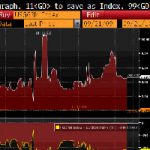You don’t have to be a professional fund manager to make good profits on the stockmarket.
Over several decades of advising people in South Africa how to invest, I told them: “You could do very much better than the professionals, because you don’t have to follow the crowd timidly to avoid criticism of mistakes, and you can invest in small companies which funds tend to avoid.”
Some private investors have shown themselves to be such shrewd judges of the market that mere rumour of their interest in a share sets professional fund managers on a buying spree.
One thing all these self-taught stockmarket wizards seem to have in common is that they make their judgements on the basis of publicly-available information – not insider tips, personal visits, interviews with companies’ senior executives, or heavyweight number-crunching.
Kevin Goldstein-Jackson, a British private investor who was so successful that he became a high-profile columnist, said his approach was a simple and instinctive one: “If you like something, check out who makes it, owns it or sells it. If you still like it, buy some shares.”
The reverse is also true.
He tells how he attended a meeting at an hotel of the Queens Moat Houses chain. He thought the conference room was dreadful and the food and service poor. City analysts were adamant that the shares were a buy, “but I sensed it was time to sell.” Soon afterwards, the company collapsed.
Here are some tips you can use to improve your individual investment skills from an American stockbroker, David Granger…
- Don’t diversify. The people who make the most money out of shares are those who concentrate on just a few areas.
- Management matters most. You should get a sense of excitement after reading a company’s annual report.
- Buy companies with global products. The most successful firms are those whose products have international appeal and are able to compete worldwide.
- Bet big on technology. You don’t have to be knowledgable about it to know that these are the shares of the future.
- Don’t let high prices scare you off. A high price/earnings ratio doesn’t necessarily mean it’s not good value. It could be because of its management, or its earnings growth.
- Trust your instincts. The key to investment success is your own intuition. Read as widely as you can to get a feel for the markets and for the most interesting stocks. Then follow your intuition.
- Never be bearish. It never pays. Economies grow, and growth makes for great investment opportunities.
Some more tips…
Another successful American investor, Robert Wilson, provided these guidelines…
- Find an intelligent stockbroker and get his attention by providing him with some facts and ideas he can use himself.
- If you can’t readily identify two or three simple reasons why a share is likely to move ahead, stay away.
- You need to spend a great deal of time working at it to beat the market. If you’re not willing and able to do that, stay out of individual share and put your money in funds.
- It’s often a good time to sell when elaborate research reports on a company start appearing.
- Beware of popular stocks. Widespread enthusiasm can bloat values, mask weaknesses and make management complacent.
- Look for substantial and sustained personal shareholdings by top management. Rich executives really do like to get richer.
CopyRight – OnTarget 2013 by Martin Spring




